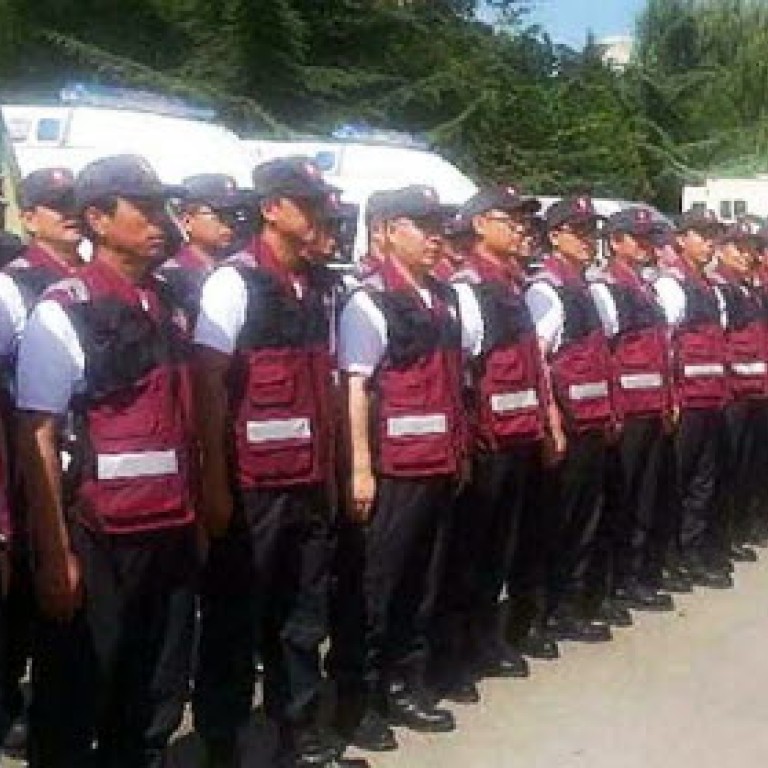
New | Pneumonic plague quarantine lifted in Gansu after no new cases reported
Fear of pneumonic plague in the old town section of a Gansu town, where 30,000 live, proves unfounded as no new cases appear
A guesthouse employee in Gansu province can finally go home to her family today, as the quarantine that sealed off parts of the city where she stayed for eight days after a man had died from pneumonic plague was lifted at midnight last night.
“[I was] thrilled to learn that the quarantine will end tonight. [I] can finally get out of here and be with my family again. I haven’t seen my daughter for a long time,” the 28-year-old employee, surnamed Zhang, told the South China Morning Post yesterday afternoon.
About 30,000 people living in the old town section of Yumen, where the plague victim was hospitalised, were not allowed to leave the area since the man died last week on Wednesday. Officials were trying to prevent any spread of the deadly disease.
Other areas under quarantine included Chijin town and one of its villages about 25km from Yumen, where the victim lived and was infected, as well as a nearby pasture.
With no further cases reported, Yumen officials lifted the quarantine in all areas, the Gansu Health and Famiily Planning Commission’s website said today.
Zhang said she was horrified when she first heard of the plague and the quarantine that followed. “I was afraid that I would be trapped here and get infected,” she said.
The quarantine had caused her great trouble, she said, as she lives 90km away with her husband and six-year-old daughter. In Zhang’s absence, the girl was sent to her grandmother’s home.
Zhang said three co-workers were also quarantined. The child of another employee who lives in old town could not return home after school was over for the summer, and had to stayed in a hostel.
Zhang said she has become more cautious about food safety in the quarantine period, and has reduced meat intake. “In the past, I usually dined at local restaurants. But now I will buy groceries from the market and cook for myself.”
Even so, old town residents said the quarantine did not affect their lives much.
“My life went on as usual. Except for the fact that [I] couldn’t leave the town, nothing much changed,” a worker for an express delivery company told the Post.
The man in his 20s, surnamed Qiao, said most residents had enough rice reserves at home, and some families living around the sealed-off area kept enough poultry and pigs to supply the local market.
Vegetables were delivered to the entrance of the quarantined area by outsiders every day, Qiao added.
“The situation was fine here. It didn’t cause much inconvenience,” said a woman surnamed Lie, who works in a bank.
Mainland media reported that the 38-year-old victim whose death caused the quarantine had come across a dead marmot on July 13. He chopped it up to feed to his dog, but developed a fever the same day and was taken to People’s Hospital in old town after his condition worsened two days later.
The old town section of Yumen is known as the cradle of the petroleum industry in China. The nation’s first oil well was dug there in 1957, and it developed into the first oilfield.
The oil industry once brought prosperity to the town, which reached a population of almost 200,000 by 1987. But as the oil ran out, the town quickly declined and people left. A new town was built 70km away, and all the municipal administrative departments moved there in 2004, leaving old town to sink into further decline.

